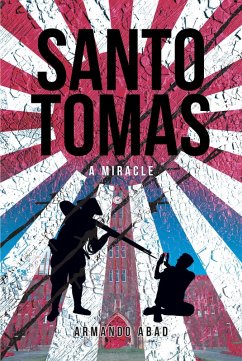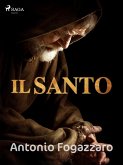Established in 1611, the University of Santo Tomas (UST) in Manila, Philippines--one of the oldest institutions of higher learning in the world--was transformed into the largest internment camp by the occupying Japanese forces during World War II. Over seven thousand civilian foreigners considered enemies by Japan, Italy, and Germany, their spouses, and their children, together with several American military medical personnel, were imprisoned, brutalized, and starved.
Its campus, founded to promote knowledge and cultivate academic progress through Christian-based curriculum and instructions, became a silent witness to Japanese atrocities. Prisoners were subjected to constant harassments, endless abuses, physical attacks, and starvation, which resulted to severe injuries, diseases, long-term illnesses, and deaths. Meager help from other foreigners, the locals, and the Red Cross flowed over and through the fence but came to a halt after the Japanese sealed the entire perimeter. To survive, they clung to their faith on the US military, on one another, and in God. However, they never felt more helpless and more isolated than when the American forces surrendered to the Japanese after the fall of Bataan and Corregidor.
Dr. Celeste Craig, her husband Adam, and their two young children were brutally arrested, and their home severely ravaged by the Japanese. Celeste and the children were interned at Santo Tomas; Adam was taken someplace else. As their lives intertwined with others, they experienced the most horrible, horrifying, and desperate circumstances that brought them into the brink of despair. On the other hand, countless acts of kindness and compassion from unexpected sources kept their hopes alive. Celeste made a promise to survive the war, reunite with Adam, and become a family again. Adam made a vow that he would not give up finding his family at all costs. However, wishing and praying were not enough. Survival became a challenge. Death was knocking on the door. They needed a miracle!
Its campus, founded to promote knowledge and cultivate academic progress through Christian-based curriculum and instructions, became a silent witness to Japanese atrocities. Prisoners were subjected to constant harassments, endless abuses, physical attacks, and starvation, which resulted to severe injuries, diseases, long-term illnesses, and deaths. Meager help from other foreigners, the locals, and the Red Cross flowed over and through the fence but came to a halt after the Japanese sealed the entire perimeter. To survive, they clung to their faith on the US military, on one another, and in God. However, they never felt more helpless and more isolated than when the American forces surrendered to the Japanese after the fall of Bataan and Corregidor.
Dr. Celeste Craig, her husband Adam, and their two young children were brutally arrested, and their home severely ravaged by the Japanese. Celeste and the children were interned at Santo Tomas; Adam was taken someplace else. As their lives intertwined with others, they experienced the most horrible, horrifying, and desperate circumstances that brought them into the brink of despair. On the other hand, countless acts of kindness and compassion from unexpected sources kept their hopes alive. Celeste made a promise to survive the war, reunite with Adam, and become a family again. Adam made a vow that he would not give up finding his family at all costs. However, wishing and praying were not enough. Survival became a challenge. Death was knocking on the door. They needed a miracle!
Dieser Download kann aus rechtlichen Gründen nur mit Rechnungsadresse in A, D ausgeliefert werden.









